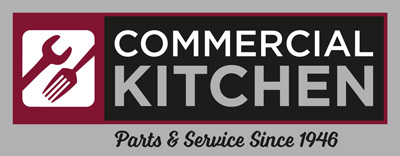By Vidal Munoz, Director of Branch Operations
With the rising of food cost and labor, restaurant managers have some difficult decisions to make when it comes to repairing equipment. The hourly rate and fees vary wildly in the repair industry. Shrinking profit margins make it increasingly important for managers to make wise choices concerning repairs. After all, when a key piece of equipment goes down, it can throw a wrench into the entire operation. Quick and cheap DIY repairs are an attractive option, but they are not always the best one. Can you afford to cause further damage to an expensive piece of equipment just to save a few dollars on the front end?
When I started in this business over 20 years ago, most equipment was relatively simple to repair. The controls were fairly simple and utilized what we would consider “basic mechanical controls”. There were only a few pieces of equipment in the industry that one could consider truly “high-tech”. In the modern commercial kitchen, however, most equipment falls into that category. Modern equipment have touch screens, PLC’s (programmable logic controllers) and computer boards. Today, the repairs often involve software upgrades, certifications, and special training.
With that in mind, the decision on who to call for the repair can be difficult. Everyone seems to know someone who is handy with tools. In fact, electricians and others may be effective in some repair settings. Given the complexity of the repairs on today’s modern equipment, however, there is a risk that more damage could be done than good. So before making that next service call, it is good to ask yourself two questions:
- Is my service company certified to work on this piece of equipment?
- If they encounter difficulties, what resources do they have to affect a repair?
Keep in mind that the majority of equipment manufacturers have already set up a national service network to handle warranty service calls. After the warranty period many have other service options. But keep in mind that your local Authorized Service Agent (ASA) has access to resources those other companies do not have. For instance, they are given equipment specific training long before the equipment hits the market. They are often required to maintain part stock levels that Company “B” is not. As an ASA they are subject to yearly audits by the manufacturers and associations they belong to. They voluntarily hold themselves to extremely high standards. Not maintaining these standards often result in serious consequences. Not all service companies hold themselves to that.
The next time a “key” piece of equipment fails in your kitchen, consider what the repairs will consist of before picking up the phone to make a service call. It is always good to have several options when it comes to equipment repair, but it is increasingly important that we make the RIGHT call.

